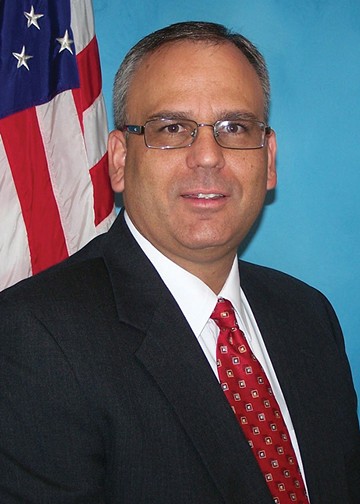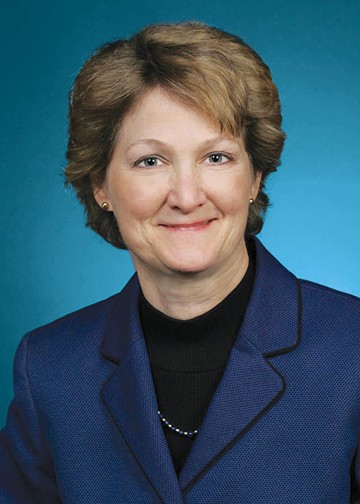
Senate minority leader Kay Floyd authored three bills that work together to reform the way the Oklahoma agencies handle sexual assault kits, also known as rape kits. All three bills cleared the Senate and have moved to committees in the House of Representatives. If passed, they would implement a statewide system to track the kits, provide more training for law enforcement and standardize the state’s sexual assault kit.
Floyd ran a bill in 2017 intended to set up a task force to look into sexual assault forensic evidence, but once she saw it was not getting enough traction, she began working with former Gov. Mary Fallin’s office. Fallin created the Sexual Assault Forensic Evidence Task Force in April through an executive order.
“We met once a month throughout the year of 2018, and the final report was issued to the governor. … There were a lot of dedicated people who really wanted to see some change,” Floyd said. “Everyone wanted the same outcome. It just became a matter of us figuring out how to get there and making sure that that was doable and that everyone’s concerns were addressed. I think the task force did a remarkable job.”
When Fallin created the task force, she also ordered a statewide audit of untested rape kits, which revealed there were more than 7,200 untested kits. The task force recommendations aimed to address the untested kits and implement ways to prevent future kits from falling through the cracks.
Floyd’s three Senate bills are a direct result of the task force’s legislative ideas. Senate Bill 967 would implement a statewide electronic tracking system for rape kits.
“The tracking system that’s been put into place by OSBI is a system that actually will track new kits as they are retrieved,” she said. “So when law enforcement investigates a sexual assault and a rape kit is taken, then the tracking system will start tracking it. … The second part of the tracking system will be to start tracking the backlog of kits, the untested kits. It’s not actually a backlog; they’re just untested.”
“The system is designed to track all sexual assault kits in Oklahoma ... in order to further empower survivors.” — Matthew Stillwell
tweet this
Senate Bill 971 requires two hours of law enforcement training on how to handle reports with the new system through Council on Law Enforcement Education Training (CLEET).
“Senate Bill 971 set up some additional CLEET training for law enforcement,” she said. “Since we’re starting in a new system, that’s going to help them get up to speed on that.”
Senate Bill 975 orders Oklahoma’s three laboratories to use one standardized kit. Currently, the state’s agencies have three different kits, so having a uniform kit will make things easier for all parties involved.
“That will be set up to where all of our labs use the same kit. They have to submit them within 20 days,” she said. “Once it’s received, it goes into the tracking system. That bill also talks about how the alleged victim is going to be given the information. They’ll be able to track their own kit at any point in time as well as law enforcement and the medical provider. That bill also says the kits will be kept for 50 years or longer or the length of the statute of limitations, so we will not have kits that are destroyed in two or three or four years.”
Tracking kits

“The intent of the system will be to provide the sexual assault survivors with the ability to anonymously track the location and status of their sexual assault kits from the point of collection to the forensic analysis to the final storage and possible destruction,” Stillwell said. “There’ll be a serial number on the kit itself, and they’ll be provided with that number. … The system is designed to track all sexual assault kits in Oklahoma … in order to further empower survivors with information and also assist law enforcement with their investigations and crime prevention.”
The tracking system, Stillwell said, will also help create transparency and foster public trust. The system will be rolled out in two phases. Once it is online, it will be tested by a select group of people to identify any issues that need to be resolved. After that, the system will be online for the entire state. The plan was to have it up and running this month.
“We have set dates and timelines and they have come and gone. My hope is that the program, as it’s being developed for Oklahoma use, will be ready for me to review hopefully by the first of April,” Stillwell said. “We’re kind of bound by OMES’ timelines and constraints, so it’s very frustrating.”
The three sexual assault bills, particularly the two that deal with the tracking system, Stillwell said, will help put some meat behind the system.
“By passing those bills, instead of encouraging the criminal justice system to use the application, it will require them to use the application,” he said. “So those sexual assault kits that slipped through the cracks, that won’t happen again.”
Though the Oklahoma and Tulsa police departments have labs to handle their own sexual assault kits, they will all be tracked through OSBI’s system. Law enforcement agencies outside the two biggest police departments will send their untested kits to OSBI.
“That’ll put us somewhere in the neighborhood of two or three thousand kits [to test],” Stillwell said.
Stillwell and Floyd both said they are anxious to get the tracking system up and running to improve the way the state handles sexual assault cases. Floyd said the technology has the potential to solve cold cases and connect the dots between past and present crimes as it provides new evidence for law enforcement.
“What we’ve seen in other states is that, even some of the cold cases, when that evidence is put into the system, into the database, sometimes they find that these cases are serial rapists. They find repeat offenders, and they’re able to open those cold cases back up,” she said. “Let’s say you got a kit that’s 20 years old and that perpetrator has been arrested somewhere else on some other charge. If his DNA matches from the kit to that, then that person could be charged for that crime. … The more that victims feel like their story matters, [the more they’ll feel] that maybe there is a way to bring the perpetrator to justice.”
The task force still meets every month, though now it serves under the Oklahoma Attorney General’s Office.











